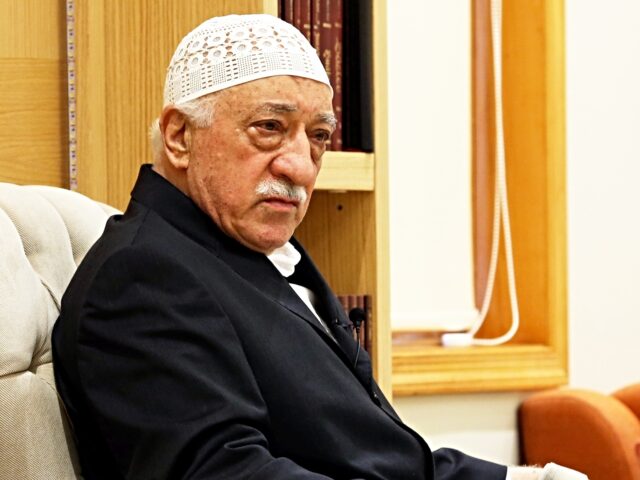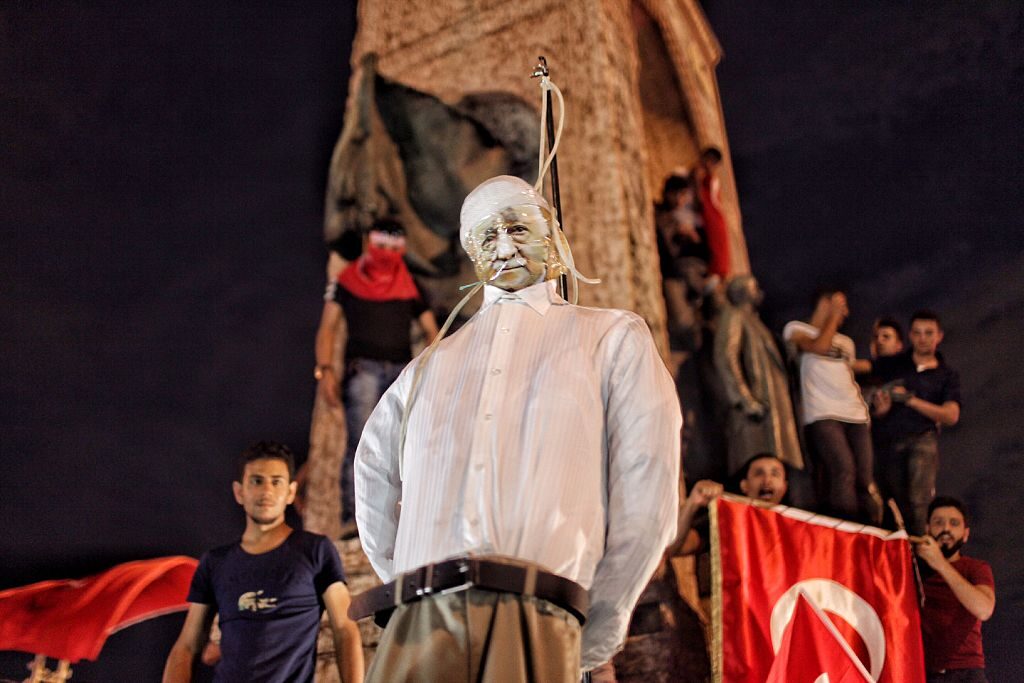Turkish Cleric and Erdogan Nemesis Fethullah Gulen Dead at 83
 Getty
Getty
Turkish cleric Fethullah Gulen, a former political ally of President Recep Tayyip Erdogan who became the authoritarian leader’s nemesis, died in a U.S. hospital from an unspecified ailment on Sunday at the age of 83.
Gulen has been living in exile in Pennsylvania since 1999. The Erdogan government accused him of masterminding the failed 2016 coup attempt against Erdogan and pressed for the United States to extradite him to face charges of treason, but the Obama, Trump, and Biden administrations all refused these requests.
Gulen has reportedly been in poor health for the past few years. Several family members and sources linked to his religious movement, Hizmet, confirmed his death on Sunday but gave few details of his passing.
“Our teacher passed away on October 20, 2024 at 21:20 in the hospital where he had been receiving treatment for a while,” said the Foundation for Dialogue and Education, an organization based in Germany that is linked to the Gulen movement.
Turkish Foreign Minister Hakan Fidan also confirmed Gulen’s death, although he spoke of the late cleric in rather less affectionate terms, describing him as the leader of a “dark organization” whose death represents a small step forward in Turkey’s fight against terrorism.
“This organization has been a rare focal point of threat in our nation’s history. It has deceived thousands of our youth in the name of sacred values and turned them into a machine that betrays their own homeland, nation, and sacred values,” Fidan charged.
“Our nation’s determination in the fight against terrorism will continue, and this news of his death will never lead us to complacency,” he said.
Fidan said that with Gulen’s death, his “spell” over his followers should be lifted.

File/ Supporters of Turkish President Tayyip Erdogan hold an effigy of U.S.-based cleric Fethullah Gulen during a pro-government demonstration in Istanbul’s central Taksim Square on July 18, 2016 in Istanbul, Turkey. (Kursat Bayhan/Getty Images)
“I invite them to abandon the treacherous path they have taken and stop working against their state and nation,” he said.
The Turkish government refers to Gulen’s worldwide movement as FETO, the “Fethullah Terrorist Organization,” and has acted ruthlessly to purge its members from government and military positions ever since the 2016 coup attempt. Human rights groups have denounced this purge as a violation of religious freedom.
Turkey has also harassed Gulen followers overseas through various methods, allegedly including assassination plots. Erdogan officials and his media allies have spun wild conspiracy theories accusing the CIA, NATO, and Israel’s Mossad of working with Gulen, but have never offered proof of their allegations.
Gulen himself condemned the 2016 coup attempt in the “strongest terms” and denied any connection with the plot. European Union (EU) intelligence officials concluded in 2017 that Erdogan himself triggered the coup attempt by planning a massive purge against his political adversaries, who concluded that overthrowing his government was their best chance of fighting back. Some of the putschists were Gulen followers, but the EU found no evidence that Gulen or his organization coordinated the effort.
It should be noted that while few other governments followed Turkey’s lead by condemning FETO as a terrorist organization (or officially labeling it as “FETO,” for that matter), Gulen’s movement is nevertheless viewed with some suspicion – including in the United States, where Hizmet runs a network of some 150 charter schools. These schools have been investigated for allegations of fraud, misuse of taxpayer dollars, and religious discrimination.
Gulen’s network is involved with schools and cultural centers in over 100 countries, and his movement has millions of followers. His influence as a Muslim cleric was very useful to Erdogan during his rise to power through the 1990s, but the two allies had a bitter fallout that erupted into open political warfare in 2013, when Erdogan accused Gulen of orchestrating a wave of corruption investigations to overthrow his government, using prosecutors and police officials who were loyal to his movement.
Source link

